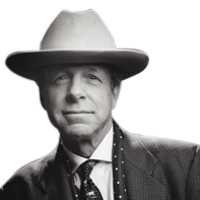We are well past the point that anyone will be shocked or even surprised by how distorted our system of funding campaigns has become, but thanks to some excellent reporting by Ken Vogel at Politico, we now have some interesting new perspective.
We have reached a tipping point where mega donors completely dominate the landscape. The 100 largest donors in the 2014 cycle gave almost as much money to candidates as the 4.75 million people who gave $200 or less (and certainly that number goes from “almost” to “more” if we could include contributions that are not required by law to be disclosed).
Think about this for a minute. This is consequential. It means that candidates running for office are genuflecting before an audience of 100 wealthy individuals to fuel their campaigns. So, whose bidding do we think these candidates are going to do? Is it any wonder that the interests of large corporations and unions get to the front of the line?
Liberal Democrats like to blow their bugles about how all the big money in politics comes from rich Republicans. Actually, as Vogel points out, 52 of the 100 top donors are Democrats, and the No. 1 donor by far is Democrat Tom Steyer, who chipped in $74 million.
At least we’ve achieved some bipartisanship somewhere in our political ecosphere. Both parties are now equal opportunity offenders when it comes to gaming the system.
But I don’t fault Steyer or the Koch brothers for trying to exert their influence politics and public policy. They have strongly held beliefs and issues they care about deeply, and they are simply spending a lot of their money to try and change things in a direction they believe would be better. Nothing illegal or unethical about that.
But let’s call the system that Citizens United and other rulings and laws have created what it is: an oligarchy. The system is controlled by a handful of ultra-wealthy people, most of whom got rich from the system and who will get richer from the system.
Supporters of the system believe that the $3.67 billion we spent on elections last cycle isn’t really all that much money. An Arkansas poultry company owner and big time political donor, Ronnie Cameron, reflected to Vogel that it’s not so different today than it’s been in the past when, “Our country was founded by the wealthy landowners having the authority and representing all the people.”
He said that out loud. To a reporter. Knowing other people might read those words. Without any apparent irony. Imagine all the poor Americans who will sleep better knowing that a rich Southern chicken farmer is happy to represent their interests.
Vogel gets to the heart of the problem though, reporting that, “When all the donations are tallied and analyzed, 2014 is likely to be noteworthy for two other milestones on the opposite end of the spectrum from the growth of mega-donations: It’s on pace to be the first mid-term election since 1990—the earliest cycle for which the Center for Responsive Politics performed such an analysis—in which the overall number of traceable donations declined. It’s also likely to be the first midterm since 1990 when the candidates’ campaigns spent less than the preceding midterm election.
The decline in candidate spending, though, is more than offset by the increase in spending by super PACs and other groups that can accept huge contributions from the ultra-rich.
That means that fewer and fewer everyday Americans are choosing to contribute to campaigns. In fact, less than 1 percent of Americans donate today. And who can blame them for feeling disenfranchised when they see their efforts dwarfed by the mega donors.
At the same time, campaigns are spending less while the special-interest groups are spending more. So we now have a system that discourages voters from participating and engaging, while rewarding and encouraging special interests to participate even more.
“[O]ur nation is facing a crisis of liberty if we do not control campaign expenditures. We must prove that elective office is not for sale. We must convince the public that elected officials are what James Madison intended us to be, agents of the sovereign people, not the hired hands of rich givers, or what Madison called factions.”
Those are the words not of some liberal Democrat. That’s the prescient echo of Barry Goldwater from 30 years ago.





